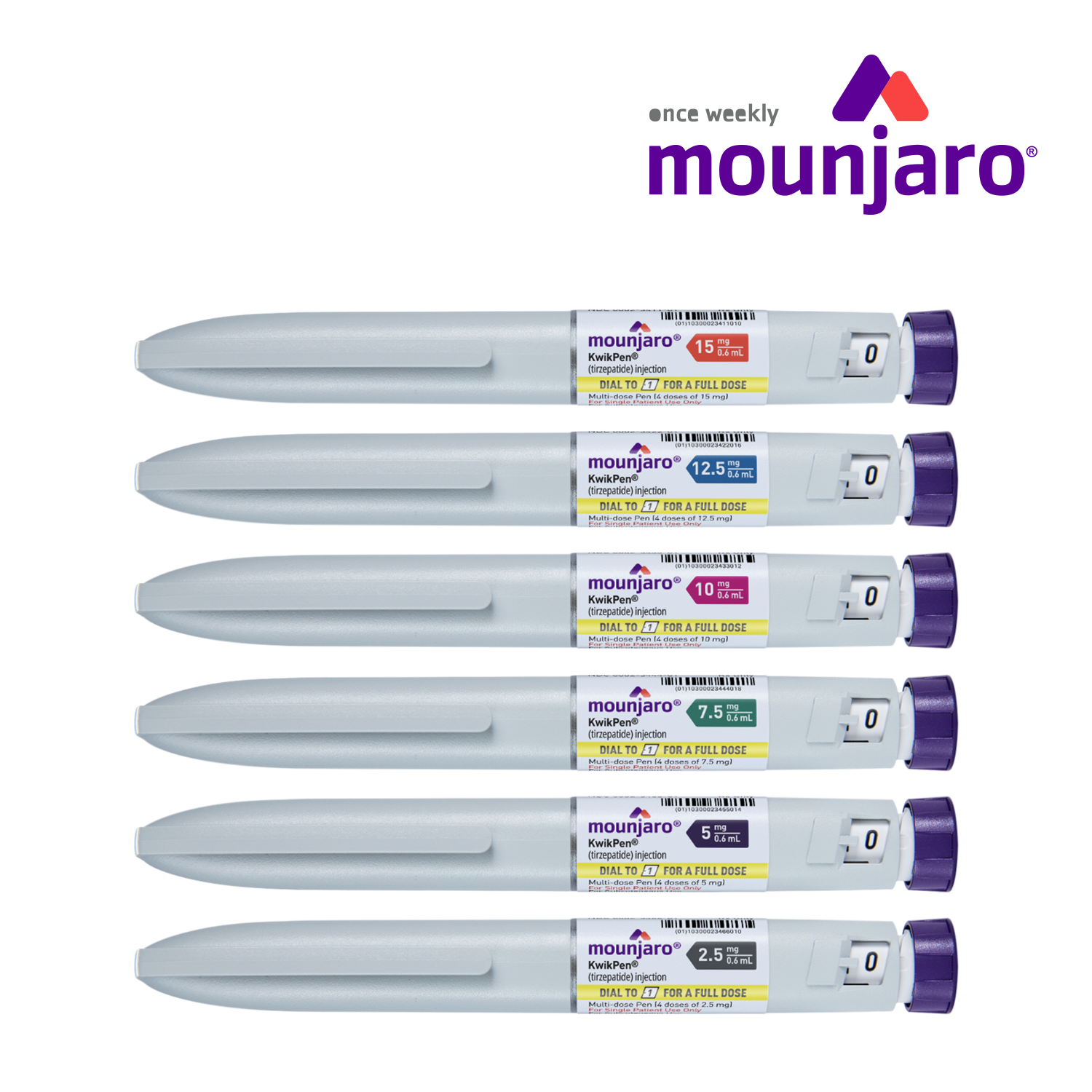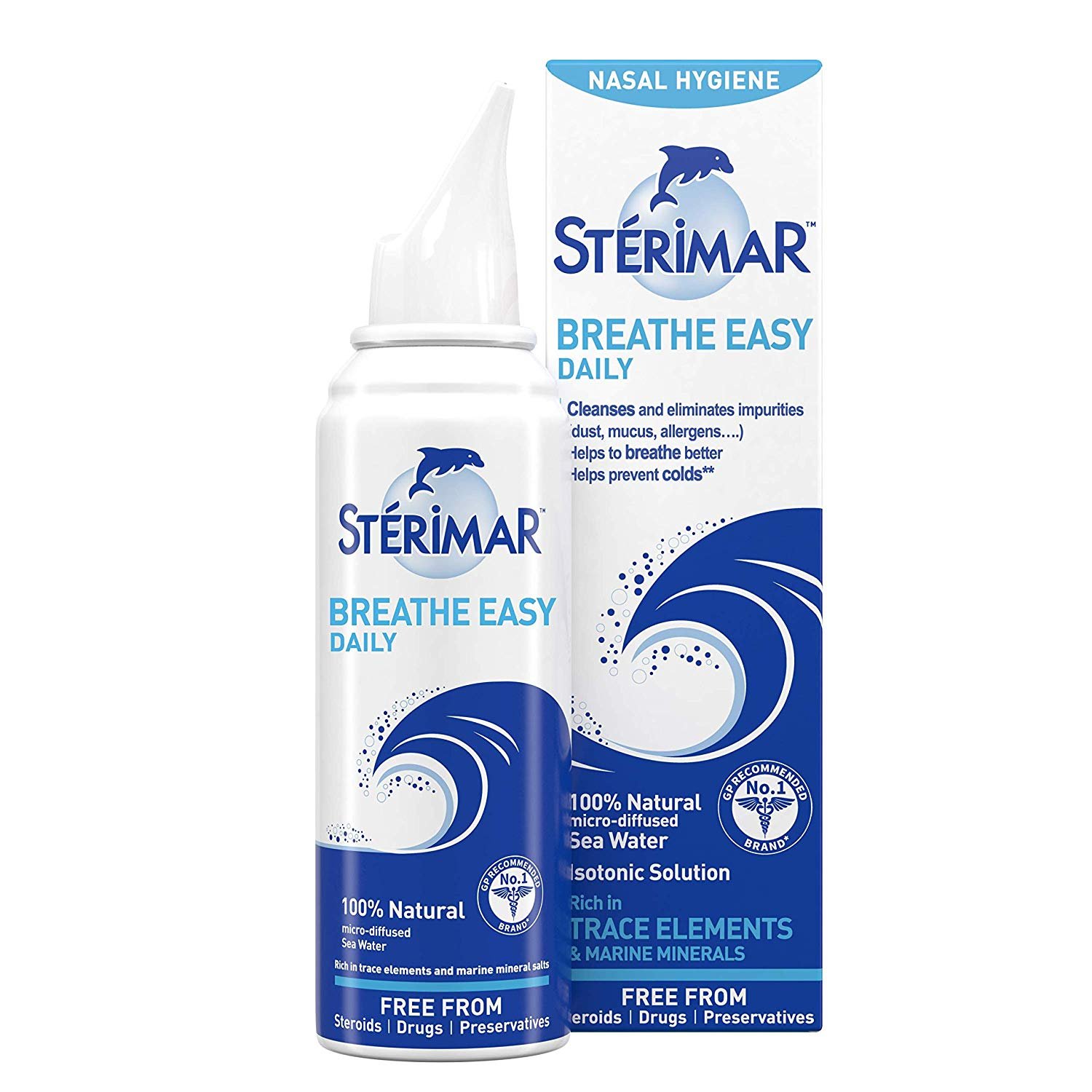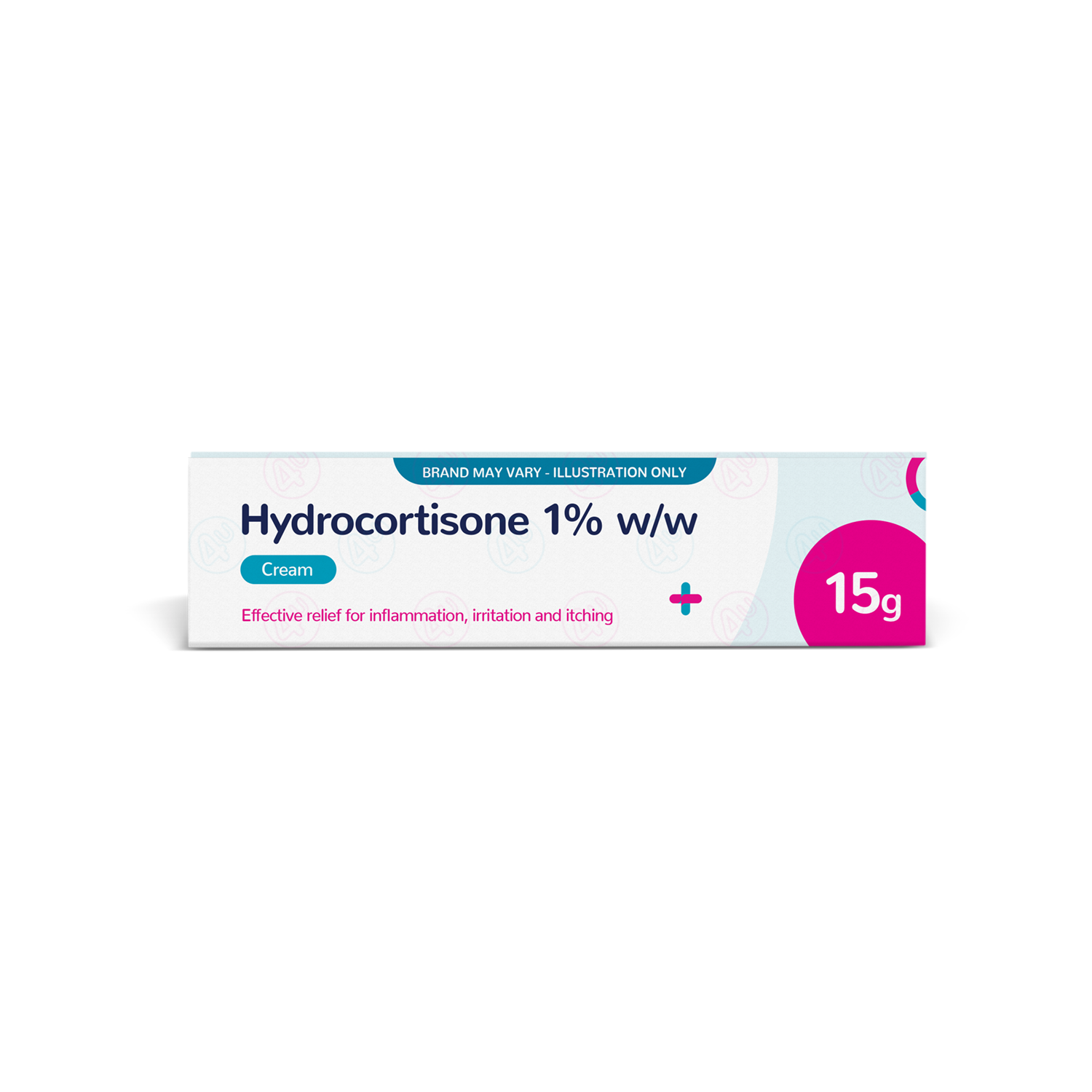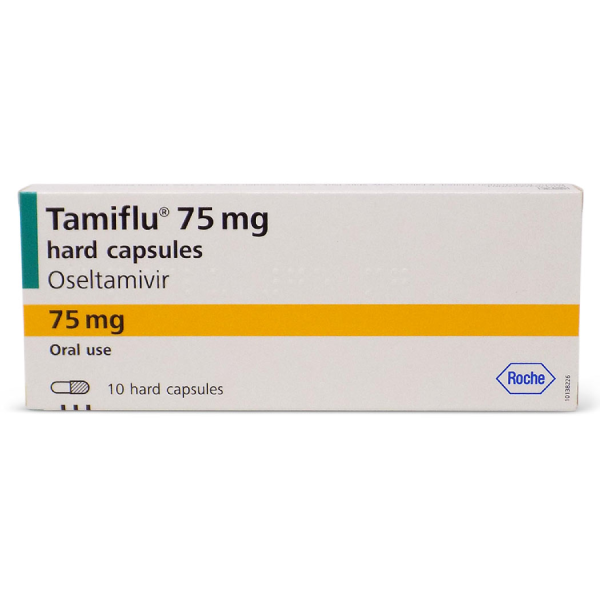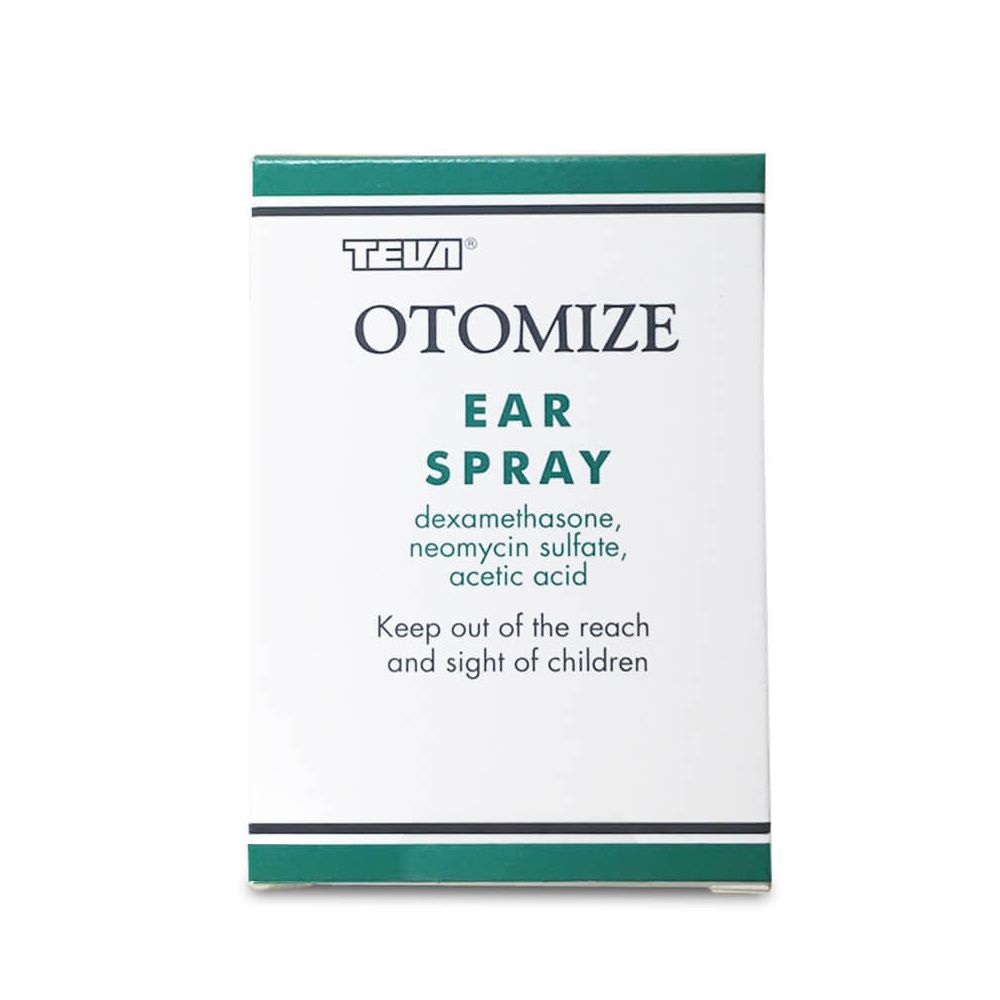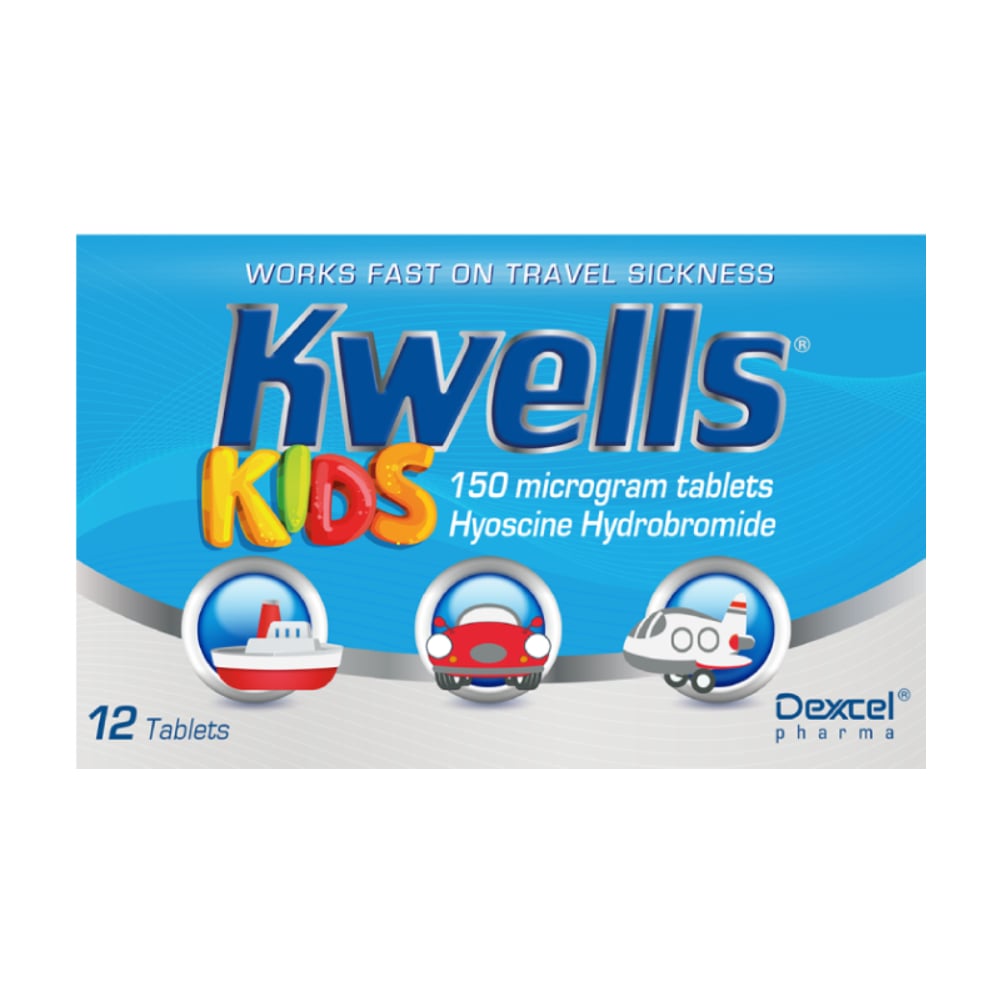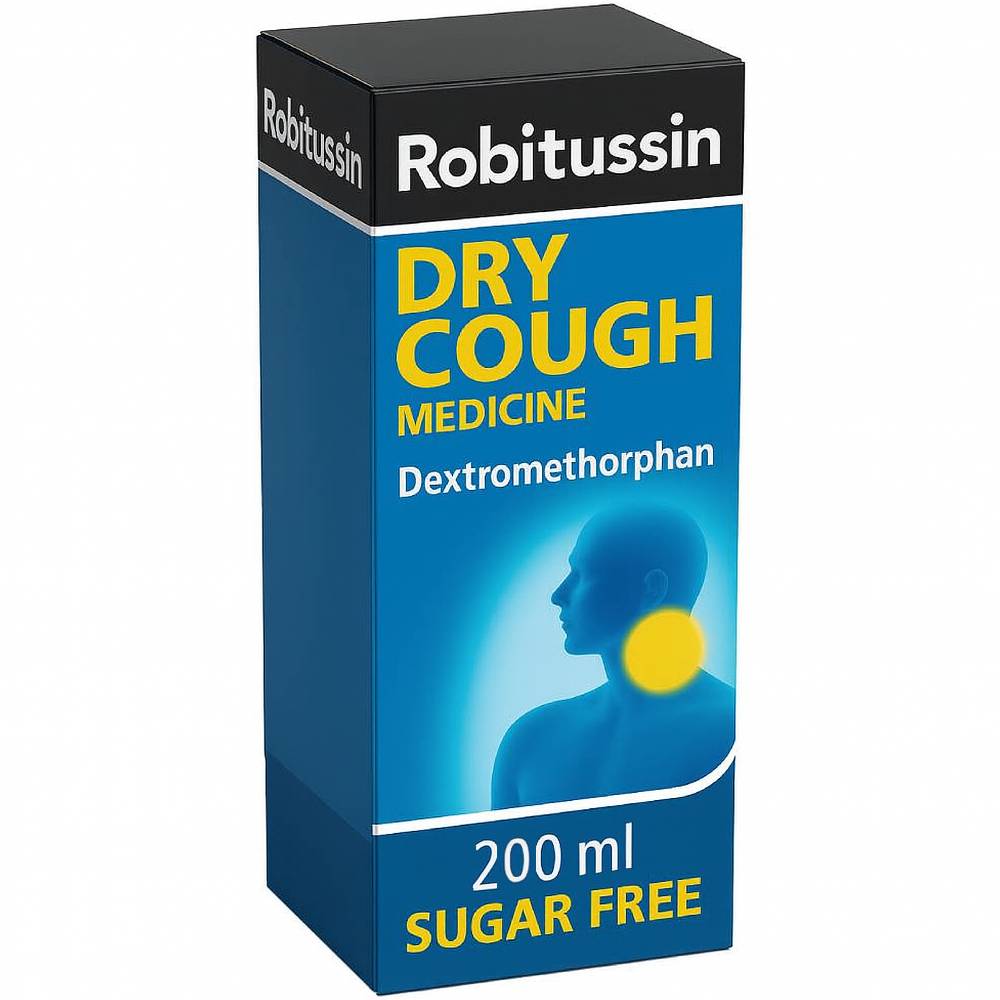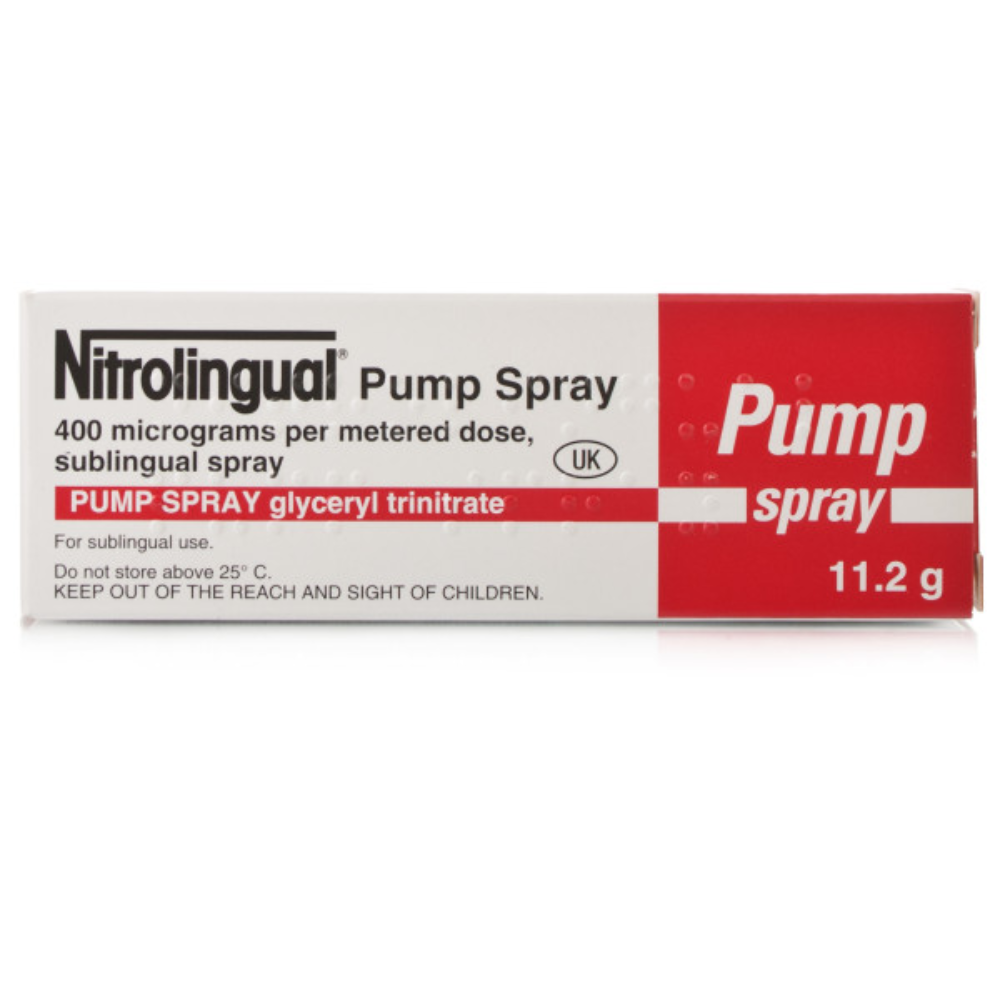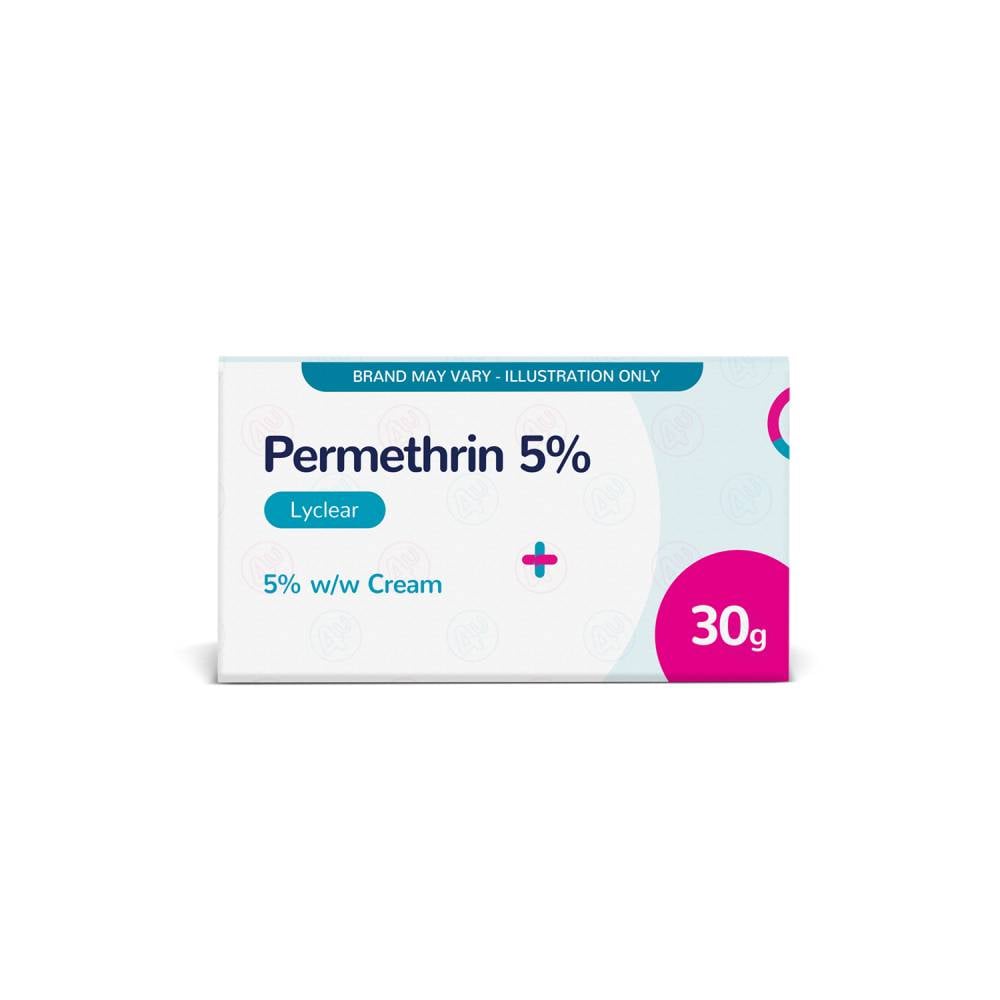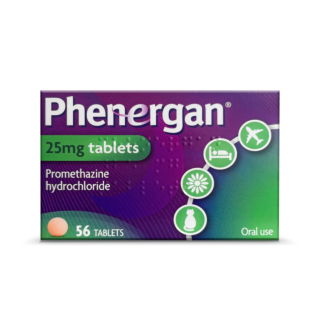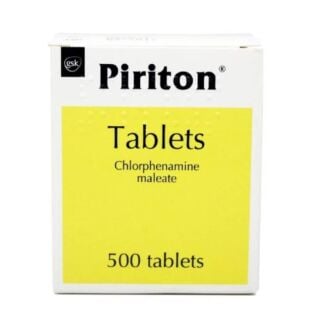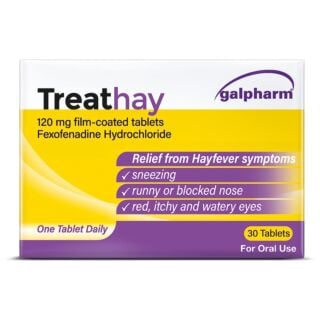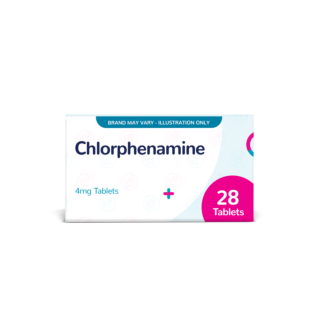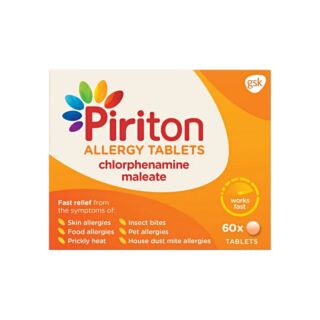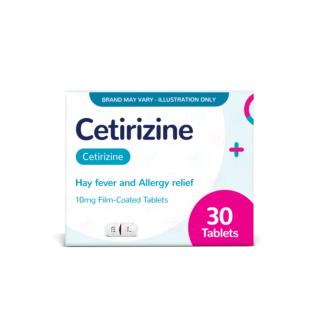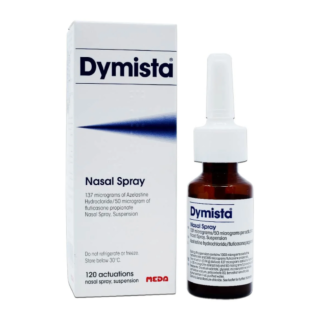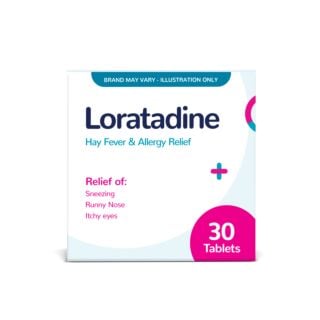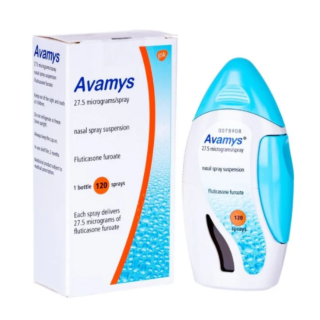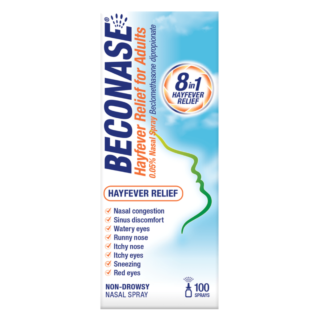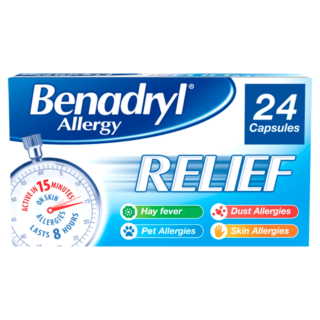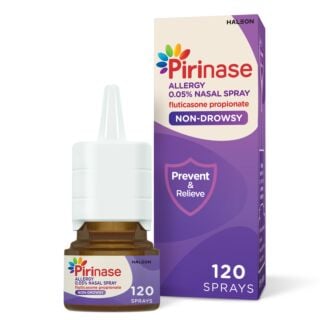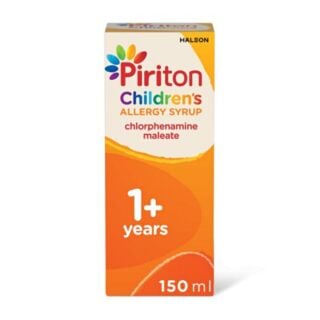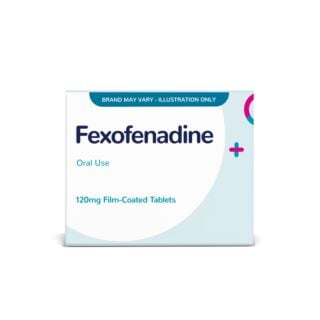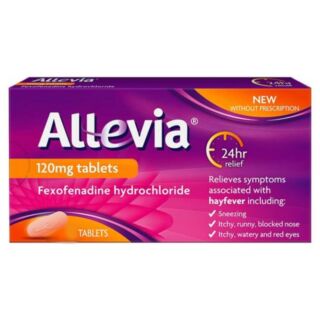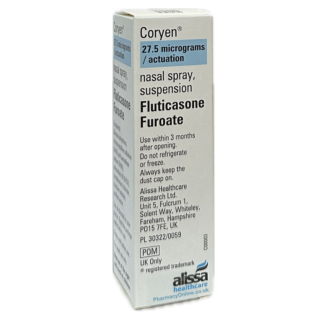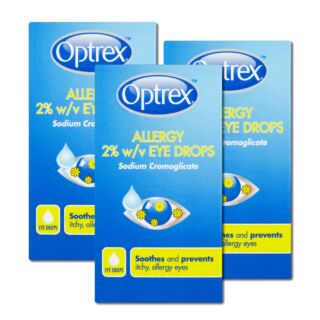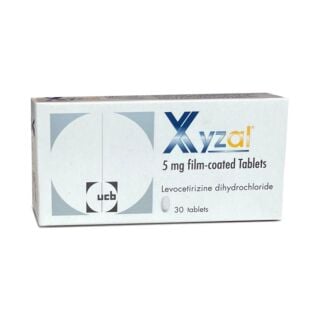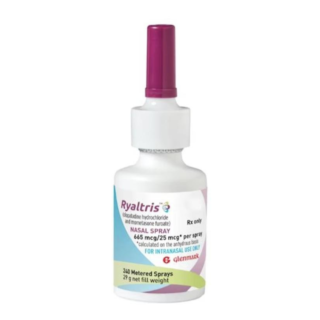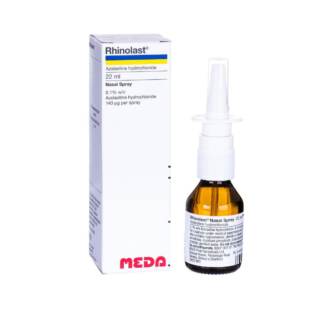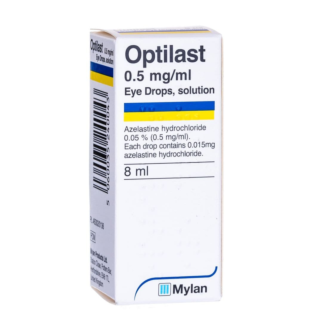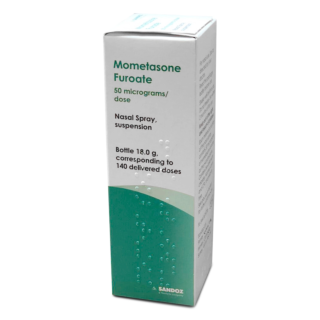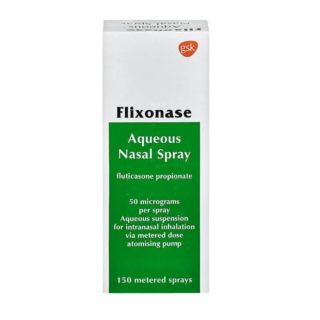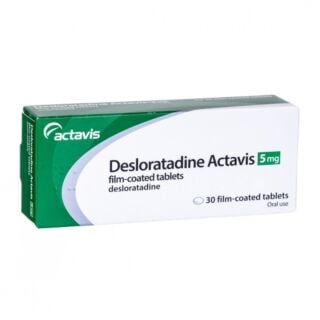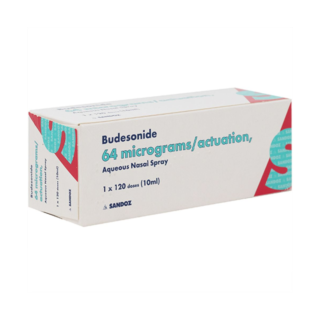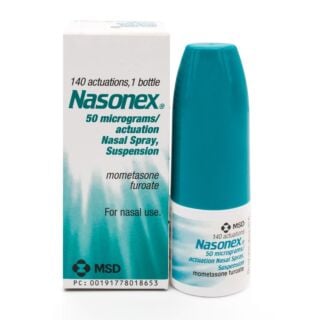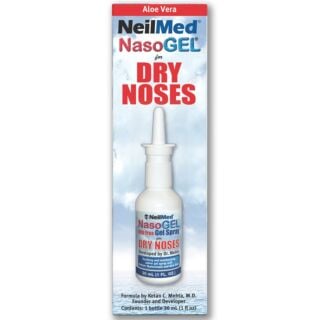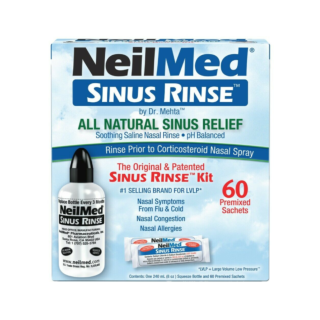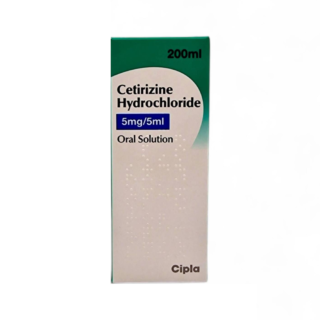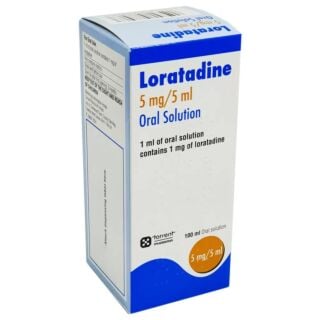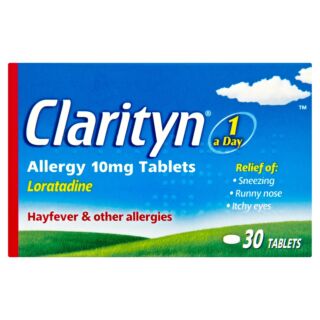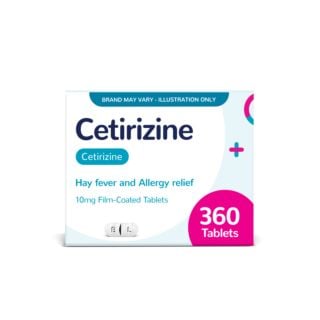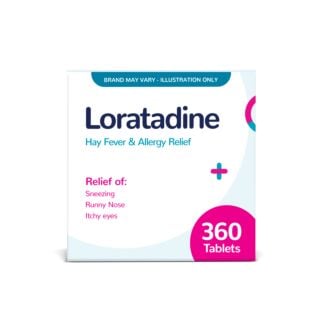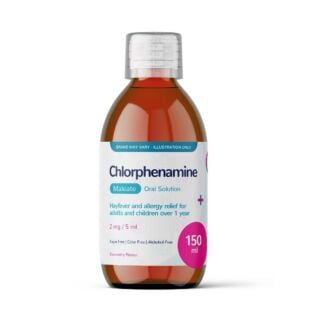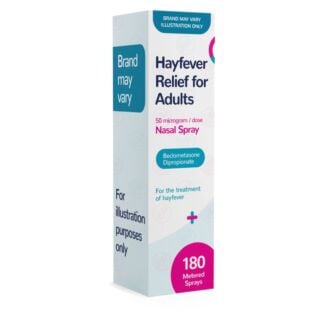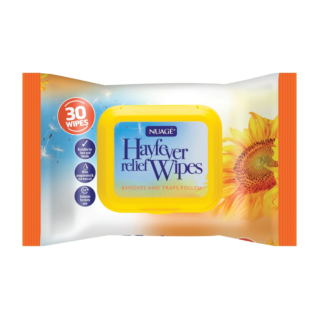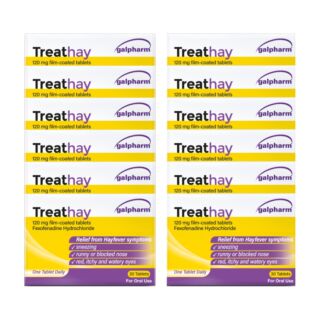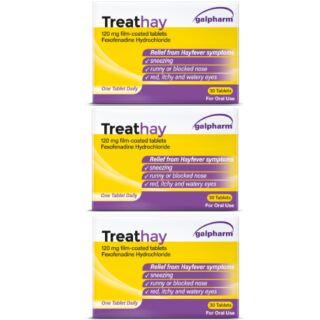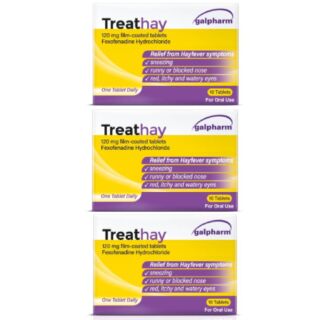Hay Fever & Allergies
Every year, as we transition from the chill of winter into the newness of spring, one in five people start to experience that old familiar sensation: itchy eyes, congestion, coughing and sneezing[1]. Is it a summer cold? No, it’s actually hay fever. … Read More See less
Thankfully, hay fever doesn’t have to ruin your summer. Unlike a cold, for which the only real cure is time, there are plenty of treatment options available for hay fever. From antihistamine tablets to nasal sprays and eye drops, there’s a hay fever treatment out there for every sufferer.
But despite how many people live with hay fever every year, there’s still a lot that many people don’t know about the condition. That’s why we’re here to help you understand everything you need to know about hay fever, from what hay fever is to when it’s best to start using medication each year. Keep reading to find out more.
-
Cetirizine (10mg) - Hay Fever & Allergy Relief - 360 Tablets (Brand May Vary)
(204) Now£7.29RRP £11.88
Now£7.29RRP £11.88
Related Guides
What is hay fever?
Hay fever is the term used to describe the symptoms caused by an allergy to pollen.
Pollen itself is harmless. However, if you have hay fever, your body has incorrectly identified pollen as an allergen. This means, when you breathe pollen in, your immune system responds by releasing a chemical called histamine to protect your body.
Histamine triggers the symptoms of hay fever when pollen comes into contact with your mouth, nose, eyes and throat, causing inflammation and irritation.
Also known as seasonal allergic rhinitis and hay fever rhinitis, hay fever tends to start to affect people when the pollen count (the number of grains of pollen in one cubic metre of air) exceeds 50. Usually, the pollen count is highest between late March and September.
There are different types of pollen you can have an allergy to[2]:
- Tree pollen – highest during spring
- Grass pollen – highest at the end of spring and the beginning of summer
- Weed pollen – highest in late autumn
Most people develop hay fever when they are a child or a teenager. However, it can be triggered at any age.
So, if you’ve never suffered from hay fever before, this doesn’t mean you won’t spontaneously develop the condition during adulthood. You are more likely to suffer from hay fever if you have a family history of the condition or other allergies.
Hay fever symptoms
The symptoms of hay fever allergies can vary from person to person, depending on the time of year, the type of pollen they’re allergic to and the pollen count where they live.
However, common symptoms of hay fever can include:
- Sneezing
- Coughing
- Blocked or runny nose (nasal congestion)
- Red, itchy or watery eyes (allergic conjunctivitis)
- Itchy throat, mouth, nose and ears
Severe hay fever symptoms
Unfortunately, some people can experience more severe hay fever symptoms. These can include:
- Fatigue and irritability, due to hay fever, affecting your ability to sleep
- A reduction in your sense of smell (anosmia)
- Pain in your face, caused by blocked sinuses
- Headaches, due to congestion
- Earache
If the symptoms you’re experiencing are affecting your quality of life, you should speak to a healthcare provider. They may be able to prescribe you with stronger medication or refer you to a specialist for further tests and treatment.
How is hay fever diagnosed?
Hay fever seasonal allergies can be diagnosed by a healthcare professional, such as your GP. To make a diagnosis, your GP will initially review the symptoms you’re experiencing.
If your symptoms and triggers paint a clear picture of hay fever, your GP will be able to make a diagnosis without conducting any further tests.
However, if the cause of your symptoms isn’t clear or your GP needs to be sure of your diagnosis to refer you for immunotherapy (see more below in the “Treatments for severe hay fever” section), they may recommend the following tests:
- Skin prick test – an allergy specialist will place small amounts of pollen onto the skin on your arm or upper back. They will then prick or scratch your skin to allow the allergen to penetrate your skin’s outer layers. You will have to wait for 15-20 minutes without scratching your skin, during which time your body’s immune system may be activated. If it is, a localised allergic reaction will occur (typically, a red, itchy bump)
- Blood test – a healthcare provider will take a sample of your blood and send it to a laboratory. It will then be analysed for specific allergy-causing antibodies produced in response to allergens, such as pollen. The antibodies found will provide an overview of the allergens triggering your hay fever symptoms
How can hay fever be treated?
There is no way to stop hay fever immediately, but there are plenty of hay fever treatments available that can help you to manage your symptoms. Which treatments are right for you depends on how severe your symptoms are. For mild to moderate hay fever, there are several highly effective over the counter medications that can be used.
Antihistamine tablets
Antihistamines work by blocking the production of histamine in your body. As a result, when your body identifies pollen, the usual allergic reaction caused by histamine doesn’t occur.
Typically, antihistamines come as hay fever tablets. However, you can also buy antihistamines as liquids, syrups, creams, gels, eyedrops and nasal sprays.
There are two main types of antihistamines:
- Drowsy – these make you feel sleepy, which can make them ideal for taking at night if your hay fever is preventing you from sleeping. Drowsy antihistamines include chlorphenamine, cinnarizine, diphenhydramine and promethazine. Side effects include sleepiness, difficulty peeing, a dry mouth and blurred vision
- Non-drowsy – these are more appropriate to use during the day, as hay fever makes you tired. Non-drowsy antihistamines include acrivastine, cetirizine, fexofenadine and loratadine. Side effects include drowsiness (as this is still possible in non-drowsy antihistamines), dry mouth, feeling sick and headaches
No antihistamine has been found to be any better than another. Although, some antihistamines may be more effective for you than others, based on your unique biology[3].
However, not all antihistamines are suitable for everyone. You should speak to a GP or pharmacist if you:
- Are pregnant or breastfeeding
- Are looking for a medicine for a young child
- Are an older person
- Are taking other medications which may interact with antihistamines
- Have an underlying health condition, such as heart disease, liver disease, kidney disease or epilepsy
If you need help with choosing an antihistamine to get started with, use our consultation service to get recommendations from one of our pharmacists.
Nasal sprays
There are two main types of nasal sprays that can be used to help manage your hay fever symptoms.
Decongestant nasal sprays
These nasal sprays contain decongestant medicines which reduce the swelling of the blood vessels in your nose and help open your airways[4].
They work more quickly than antihistamine tablets. However, they have been found to increase blood pressure and cause headaches, trouble sleeping and irritability. Decongestants can also cause addiction if used for longer than five days.
As antihistamines aren’t always effective at reducing congestion, a nasal spray can be used in combination with an antihistamine.
Steroid nasal sprays
Steroid nasal sprays contain corticosteroids, which are anti-inflammatory medicines. These work by reducing swelling in the nose to limit symptoms such as sneezing and a runny or blocked nose.
Unlike decongestants, these can be used continuously for between one to three months. Although, it’s best to start using these sprays one to two weeks before your symptoms are due to start, as they can take a few days to start working properly.
If not overused, steroid nasal sprays do not usually cause any side effects. However, using a steroid nasal spray too much over a long period of time can increase your risk of side effects, such as:
- Nasal irritation
- A dry, crusty nose
- A dry, irritated throat
- An unpleasant taste in the mouth
- Nasal itchiness, redness and swelling
- Nosebleeds
Eye drops
Eye drops used to treat hay fever contain an anti-allergic medicine called sodium cromoglicate, which stops the release of histamine[5]. This is particularly helpful for treating itchy eyes.
You should not use hay fever eye drops for longer than two weeks in total, unless you have been specifically advised to do so by a healthcare professional. Using them for longer than four weeks may reduce the effectiveness of the medicine.
Most adults and children can use sodium cromoglicate eye drops. However, they are not suitable for everyone. To make sure they're safe for you, you should let your doctor know if you:
- Have ever had an allergic reaction to any medicine containing sodium cromoglicate
- Have dry eye syndrome (when your eyes do not produce enough tears)
- Are pregnant or breastfeeding, as you should only use medicines prescribed by a doctor
Sodium cromoglicate eye drops can cause stinging, burning or blurred eyesight. If this occurs, hold a cool, wet flannel over your eye until the symptoms ease. If the stinging persists, you should contact your GP.
Rarely, anaphylaxis can occur in response to sodium cromoglicate. You should call 999 if:
- Your lips, mouth, throat or tongue become swollen
- Your breathing becomes fast or you begin struggling to breathe
- Your throat is tight or you have difficulty swallowing
- Your skin, tongue or lips turn blue, grey or pale (this may be easier to see on the palms of your hands or soles of your feet if you have black or brown skin)
- You experience confusion, drowsiness or dizziness
- Someone faints and cannot be woken up
- A child is limp, floppy or not responding normally
Treatments for severe hay fever
For severe hay fever, you can also explore a treatment called immunotherapy. During this treatment, you’ll be given small amount of pollen (under the brand name Allergovit) over time, as an injection, to gradually build up your body’s resistance to pollen’s allergic effects.
This treatment is not a hay fever cure. However, it can significantly reduce your symptoms, and the benefits last long-term[6].
Because you are being exposed to an allergen, you can experience allergic reactions during the treatment. However, severe allergic reactions to Allergovit are extremely rare.
How to manage hay fever
Once you have identified the type of pollen you are allergic to, you can identify when you’re likely to start experiencing symptoms and begin taking antihistamines around two to four weeks before this time. Antihistamines are most effective when taken this way.
However, in addition to using antihistamines and other hay fever medications, the NHS provides the following list of things you can do to treat hay fever yourself:
- Put Vaseline around your nostrils to trap pollen
- Wear wraparound sunglasses, a mask or a wide-brimmed hat to stop pollen getting into your eyes
- Shower to wash pollen off your skin and change your clothes after being outside
- Stay indoors whenever possible
- Keep windows and doors shut as much as possible to stop pollen getting into your house
- Dust with a damp cloth and vacuum regularly
- Buy a pollen filter for the air vents in your car and a vacuum cleaner with a HEPA filter
How to prevent hay fever?
Unfortunately, there is no way to avoid getting hay fever or to cure hay fever permanently. However, you can be proactive by making sure you start taking antihistamines early every year. You can also have other hay fever medication on hand so you that you can start using it as soon as you need it.
In addition, it’s worth trying to lessen your exposure to pollen by staying indoors as much as possible and following the NHS advice above. However, if you experience particularly severe hay fever symptoms, you should speak to your GP to find out whether a more long-term solution, such as immunotherapy (hay fever injections), may be suitable for you.
Sources
- https://www.nhsinform.scot/illnesses-and-conditions/immune-system/hay-fever/
- https://www.kch.nhs.uk/wp-content/uploads/2023/01/pl-012.3-pollen-avoidance.pdf
- https://www.imperial.nhs.uk/-/media/website/patient-information-leaflets/respiratory-medicine/skin-allergy-tests.pdf
- https://www.nhs.uk/conditions/decongestants/
- https://www.nhs.uk/medicines/sodium-cromoglicate-eye-drops/about-sodium-cromoglicate-eye-drops/
- https://www.uhsussex.nhs.uk/resources/allergovit-desensitisation-for-hayfever-2/

Free delivery when you spend over £30

100% discreet delivery for every item ordered

Fully regulated UK pharmacy
Can I drive while I’m taking desloratadine?
As desloratadine is a non-drowsy antihistamine you will usually be able to drive after taking these allergy tablets.
However, there is always a chance that you may experience symptoms like drowsiness or dizziness when you take this medication, so if you’re taking them for the first time you should make sure you don’t need to drive right away.
This will give you the chance to assess how your body reacts to this medication and whether you will be safe to drive.
If you experience any symptoms that affect your concentration, make you drowsy, or would affect your ability to drive in any way, don’t attempt to drive or use any tools or machinery until the symptoms have passed and you’re sure that you’re safe to do so.
Which Hay Fever Treatment Is Right For Me?
There are so many different kinds of hay fever treatments out there that it can be difficult to know where to start, so today we’re going to break it all down so you can decide exactly which product is the best choice for you.
We’re going to look at all of the different types of hay fever relief, what they do, who they’re for, and how they can make your symptoms more manageable.
There are four different types of hay fever remedies; tablets, syrups, nasal sprays, and eye drops.
We’re going to take a look at each one in turn, so let’s get started with hay fever tablets.
Will hay fever tablets make me drowsy?
Some hay fever tablets will make you feel drowsy, but newer antihistamines are designed to avoid this side effect.
If you’re looking for an allergy medicine that will be less likely to make you feel drowsy, we recommend products that contain cetirizine or loratadine.
These are available as generic medicines, and are also the active ingredients in brand name tablets including Benadryl and Clarityn.
What is allergic rhinitis?
Allergic rhinitis refers to the inflammation of the inside of the nose that occurs during an allergic reaction caused by:
- Pollen
- House dust mites
- Mould
- Animals
Pollen is one of the most common causes of allergic rhinitis - this allergy is referred to as hay fever.
Most people with hay fever only experience symptoms of allergic rhinitis during the spring and summer months when the pollen count is at its highest.
What causes hay fever?
Hayfever is a common allergic condition that affects up to one in five people.
It usually affects people in the spring and summer when plants start to release pollen, a fine powder let out by plants as part of their reproductive cycle.
The proteins in pollen can cause your nose, throat, eyes and sinuses to become swollen and inflamed.
The main three types of pollen that can trigger allergic reactions are tree pollen, grass pollen and weed pollen.
What is hay fever?
Hayfever is a common allergy that usually affects people in the spring and summer when plants start to release pollen, a very fine powder that is part of the plant’s reproductive system.
The proteins in pollen can cause your nose, throat, eyes and sinuses to become swollen and inflamed.
Hay fever is usually worse between late March and September in the UK, when the pollen count is at its highest.
Symptoms of hay fever include:
- Sneezing and coughing
- A runny or blocked nose
- Itchy, red or watery eyes
- Itchy throat, mouth, nose and ears
- Loss of smell
- Pain around the temples and forehead
- Headache or earache
- Feeling tired
If you also suffer from asthma, hay fever can also cause a tight feeling in your chest, shortness of breath or wheezing and coughing.
Are hay fever tablets safe for children?
Hay fever tablets are often suitable for children aged 6 and over.
However, you should check the packaging or patient information leaflet before giving any medicine to your child to be sure that it’s appropriate for their age.
If your child is too young to take hay fever tablets, there are allergy syrups available that are usually more appropriate for children, with some being available for kids aged 2 and up.
Can I get hay fever tablets over the counter?
Different hayfever tablets contain different active ingredients. Remedies containing Chlorphenamine (Piriton), Promethazine (Phenergan) or Diphenhydramine (Benadryl) can be sold over the counter when their sale is reviewed by a pharmacist which is why we ask customers a few questions before they are able to purchase them. Over the counter hayfever tablets are not inherently "stronger" than those available on general sale. Tablets containing low doses of Cetirizine and Loratadine can be bought without pharmaceutical review and you may find that these are more effective for your particular symptoms. Read more about choosing the right hayfever treatment.
Can I take two kinds of hay fever medication at once?
Some hay fever sufferers may even find that when they do find a hay fever medication that works, it doesn’t completely get rid of all of their annoying hay fever symptoms.
If you’ve ever found yourself in this situation, you may start to wonder if one kind of hay fever medication is enough, and whether it would be safe to take more than one at the same time.
Do hay fever tablets have side effects?
All medications can have side effects and that includes hay fever tablets.
It would be impossible for us to list every single one, as there is a range of active ingredients in allergy tablets that all come with their own potential symptoms to consider.
We would advise checking out the patient information leaflets that come with every medication, which have comprehensive lists of all side effects.
It’s important to familiarise yourself with the potential side effects of any medication before you take it, which is why we have links to online versions of these leaflets on every product page.
If you’re still unsure you should speak to your doctor or pharmacist and ask them to explain which symptoms you should look out for.
They will be able to tell you the most common side effects of your antihistamine of choice and help you to be sure you’re taking the best hay fever tablets for you.
What’s the best antihistamine for itchy skin?
Taking an antihistamine can help to stop the itch-to-scratch cycle and give your skin time to heal.
It’s better to take a non-drowsy antihistamine, like Clarityn, when your itching affects your daily life to avoid becoming sleepy, which may interfere with work or school.
If your itching disturbs your ability to sleep at night, take a drowsy variety to help you drift off easier, such as Benadryl.

